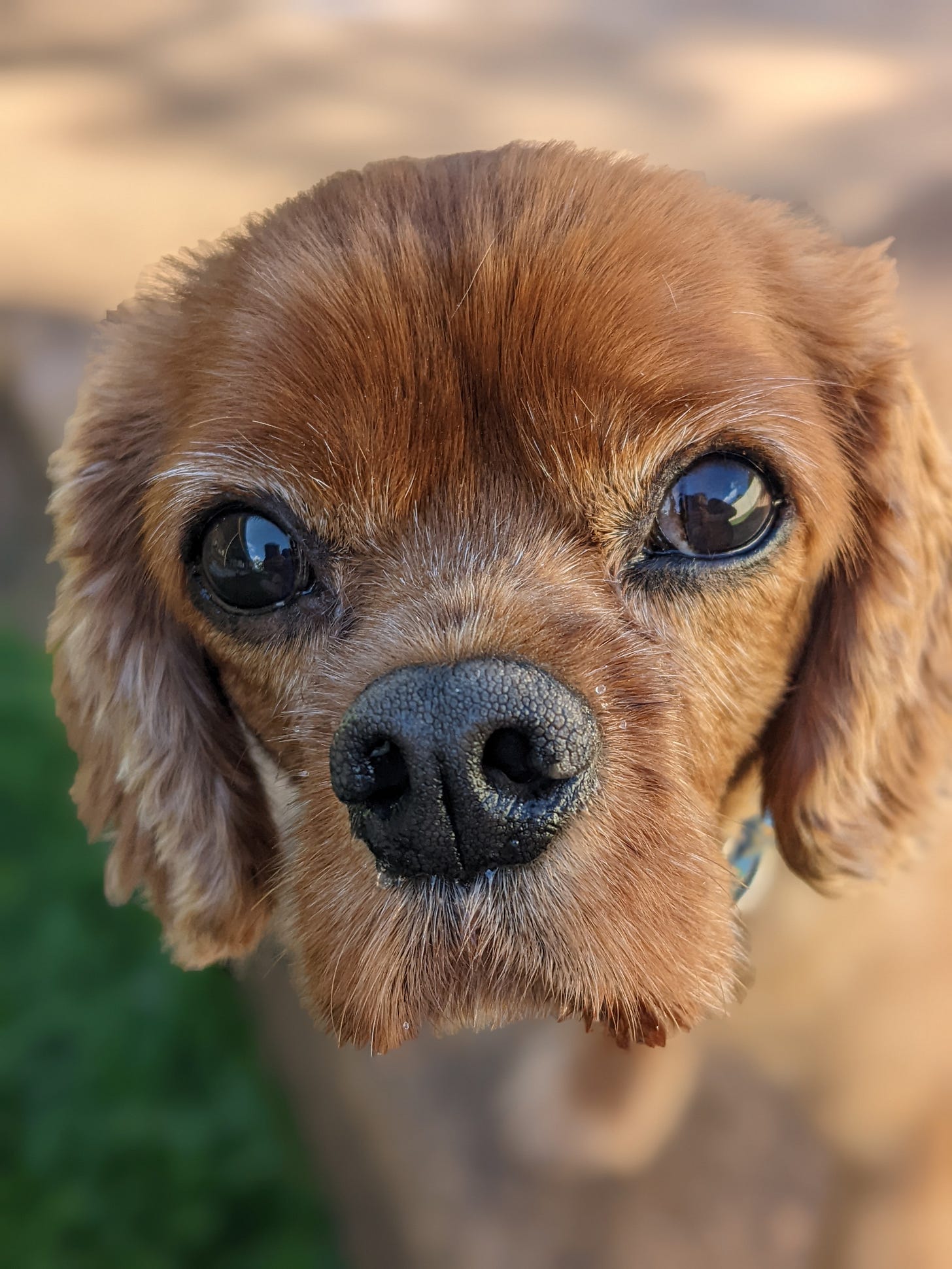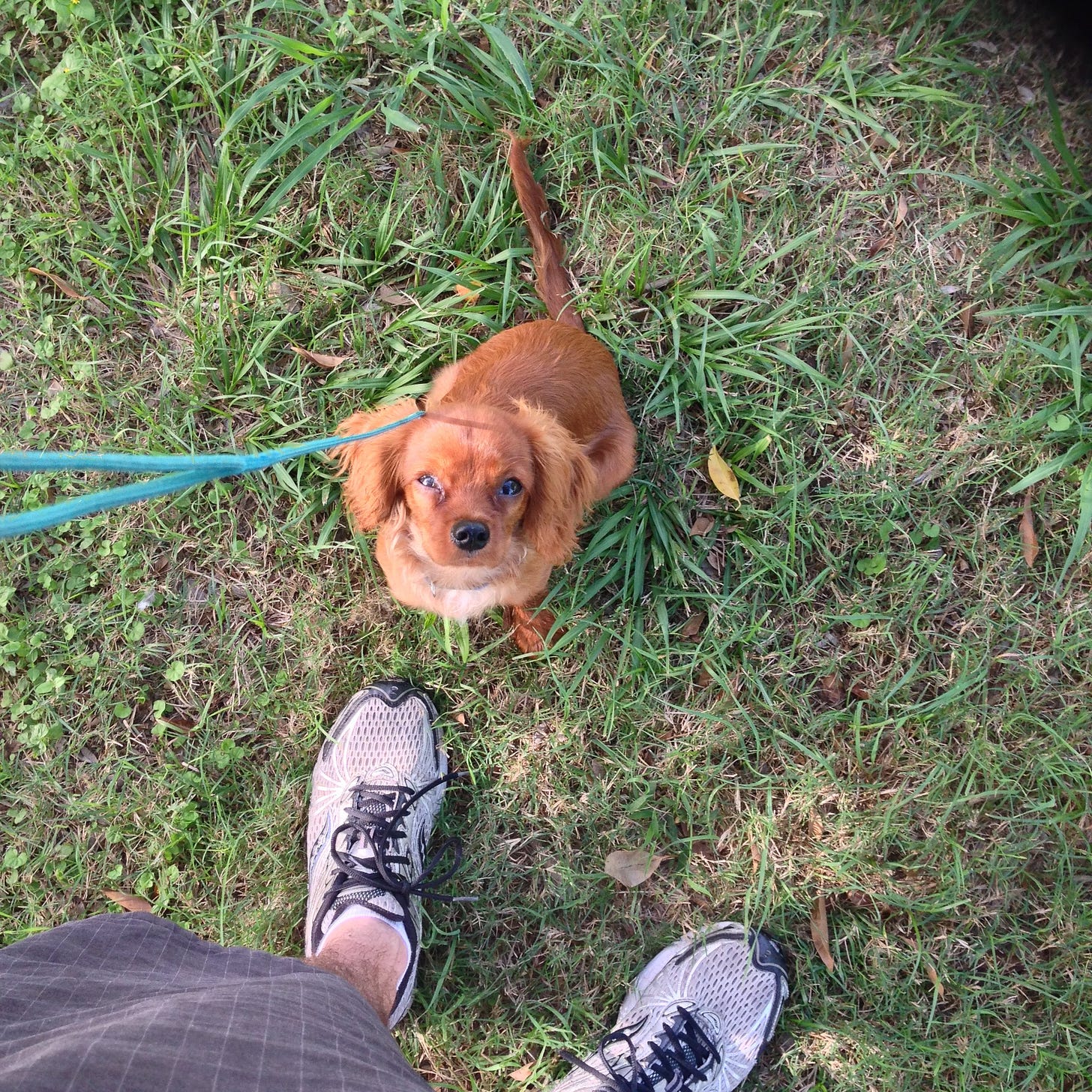What happened with Ernie
Children's grief
First, they offer condolences for Ernie.
Then, they ask about the girls.
It almost happened a week before. I had returned from the vet and looked at my wife and explained the thousand dollars we were about to spend on his hospitalisation, with no guarantee of anything improving. Something significant had happened to his heart. We had been warned it would happen for years. It was time. But neither of us could find the strength to make the call. So instead, we increased the medication and waited.
He improved and then he didn’t. He couldn’t sleep. He lost interest in food. A walk from the bedroom to the lounge room was enough to make him pant.
It was time.
It was Monday. A set of grandparents were staying, which was fortunate because Emily (my wife) and I were both in the middle of full-time work.
I rang the vet.
‘I think it’s time we put him down,’ I told the receptionist on the phone before launching into a lengthy defence of his murder. She was uninterested.
‘We have another euthanasia at eight, but we can fit him in at eight-thirty?’
We cleared the morning.
We have two daughters. Ellie is six, and Ruby is three. I walked into the kitchen and explained what was happening to Ellie.
‘When something or someone dies it’s normal to feel a lot of feelings. Sad, or confused or angry…’
She shrank into Emily and I and cried quietly. We hugged.
The tears were dried. She didn’t have to go to school, so she was happy. She wanted to be at the vet. The vet was always exciting, and she was especially curious about this visit.
We sat on the couch, and she asked questions about his body. She wanted it to be brought home and buried, but that was going to be problematic. His body would remain at the vet.
So then, this child, with limited experience of death and no memory of funerals, came up with the idea that we should dedicate a stone in the backyard to his memory. So that was that.
We looked at photos on my phone for a while, laughing at Ernie in puppy form. He was agile, silly and playful. Rather than make me sad, the photos validated the decision. He really had gotten older and wasn’t enjoying life anymore.
When I carried him out to the car, his heavy, warm weight relaxed into my arms. Ten years ago I’d carried him into our unit. He was scared then, but tired now. His heart had exhausted him, and he plopped into the back seat without complaint. The girls took their seats on either side of him. I contemplated taking a photo, and then didn’t.
The vet was set up for us. They’d lit a candle in the room, which made me both confused and happy. This is what they could offer in secular 2023: a faint gesture to the after-life and spirituality. A tea candle.
The girls sat and watched. The vet and the nurse spoke in hushed tones. Three hundred dollars, thank you. A sedative. He relaxed within seconds, lying down on the soft mat. The girls gave him a final pat at our urging, but they didn’t want to touch him for the final moment.
The final needle went in. Emily patted him, and I stayed at his head. His eyes didn’t move from me the entire time. Something impossible shifted. His eyes remained open, but they were empty. The vet checked. He was gone.
The vet left us to mourn. I felt very little, which is normal for me.
‘When’s he going to die?’ asked Ellie.
‘He’s gone bub.’
She was confused. She looked at his eyes. The whole thing had been quieter than they’d expected. Less spectacular. They patted his body but then withdrew their hands and looked at them, confused. Why did he feel different?
We left. Initial enthusiasm about a cafe and a playground waned. Ellie was quiet and sad. Better to go home.
We did. We waited for an hour to watch the girls implode into grief but that never happened. I decided to leave for work early. I couldn’t be in the house anymore. I had felt nothing all morning, and now I felt a great uncomfortable restlessness.
Emily left for work soon after me. But her departure set Ruby into explosive grief, and Em ended up cuddling her until she fell asleep. She left.
The girls remained with their grandparents.
Ruby was fine when she woke.
They painted a stone and wrote ‘Ernie’ in large, colourful letters.
Then Ellie decided, perhaps from her Anglican education, that death meant ‘party’, and so they played music and danced and had a picnic.
Ellie asked her grandmother: ‘can dead things see?’
She was confused about his eyes staying open.
It’s a week later now and as far as we can tell, this was the extent of their grief.
But as Emily pointed out to me, it’s a perfect grief.
They are young, and so have no blocks or shame about feelings. They felt emotions, and we gave them room to feel them. They curated their own arts experience, they asked questions, and they danced.
They said goodbye.
I felt nothing until two days later. Then a heaviness.
I had a nightmare about his body and eyes, the needle not working, and having to kill him myself. And then cremating him, his eyes still open.
There’s a constant cognitive dissonance in shaking off habits built over ten years. The house is louder now because every sound (the dishwasher, the blinds knocking, the floor creaking) is not him.
I can’t cry, although I’ve tried. The patriarchal conditioning is too strong. This blog is my offering, although it’s less beautiful than the one the girls made. And we dance nightly.
It was my birthday a few days after Ernie left. And I thought so many times of how lucky and startling to be alive and connected and sweaty and uncomfortable and free. How lucky, how lucky, how lucky.


